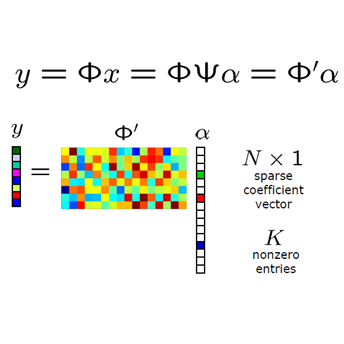This paper introduces a novel framework and corresponding methods for sampling and reconstruction of sparse signals in shift-invariant (SI) spaces. We reinterpret the random demodulator, a system that acquires sparse bandlimited signals, as a system for the acquisition of linear combinations of the samples in the SI setting with the box function as the sampling kernel. The sparsity assumption is exploited by the compressive sensing (CS) paradigm for a recovery of the SI samples from a reduced set of measurements. The SI samples are subsequently filtered by a discrete-time correction filter to reconstruct expansion coefficients of the observed signal. Furthermore, we offer a generalization of the proposed framework to other compactly supported sampling kernels that span a wider class of SI spaces. The generalized method embeds the correction filter in the CS optimization problem which directly reconstructs expansion coefficients of the signal. Both approaches recast an inherently continuous-domain inverse problem in a set of finite-dimensional CS problems in an exact way. Finally, we conduct numerical experiments on signals in polynomial B-spline spaces whose expansion coefficients are assumed to be sparse in a certain transform domain. The coefficients can be regarded as parametric models of an underlying continuous-time signal, obtained from a reduced set of measurements. Such continuous signal representations are particularly suitable for signal processing without converting them into samples.
翻译:本文引入了用于取样和重整变化变量空间中稀少信号的新框架和相应方法。 我们重新解释随机降压器,这是一个获得稀小带带宽信号的系统,作为在SI系统设置中获取样本线性组合的系统,其箱式功能为取样内核。 压缩传感器模型利用“偏移性”假设,从一组减少的测量中恢复SI样本。随后,通过一个离散时间校正过滤器过滤系统样本,以重建观测信号的扩展系数。此外,我们将拟议框架的概括化为其他得到紧凑支持的光带宽度小的取样内层。通用方法将校正过滤器嵌入CS优化问题中,直接重建信号的扩展系数。两种方法都精确地将一个内在的连续的反向问题放在一套有限的CS问题中。 最后,我们从多元B线空间中进行了一些信号信号的数值实验,这些信号的扩展系数被假定为不固定的信号输出模型,因此可以将这种信号转化为一个连续的模型的精确的模型。


